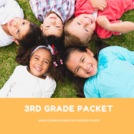
This packet assists parents and teachers transition to distance learning.
- Subject:
- English Language Arts
- Mathematics
- Reading Foundation Skills
- Material Type:
- Lesson Plan
- Author:
- Cosmic Cubs
- Date Added:
- 03/31/2020

This packet assists parents and teachers transition to distance learning.
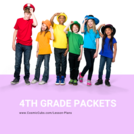
This packet assists parents and teachers transition to distance learning.
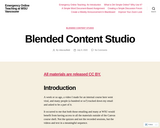
A practical guide to creating blended learning, with lots of videos to illustrate steps and concepts. Written for higher ed, but definitely usable for anyone.
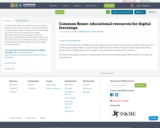
Common Sense Education provides users with a great amount of resources for students, teachers and parents on a wide range of topics related to safe and responsible use of the Internet. The topics include digital citizenship, educational technology reviews and strategies, and professional development for educators.
This site also has a great number of videos, guides and activities that help explain difficult topics in a simple and accessible way.

This course examines cultural performances of Asia, including both traditional and contemporary forms, in a variety of genres. Students will explore the communicative power of performances with attention to the ways performers, media, cultural settings, and audiences interact. The representation of cultural difference is considered and how it is altered through processes of globalization. Performances are viewed live when possible, but the course also relies on video, audio, and online materials as necessary. There are no prerequisites for this course and it is taught in English.
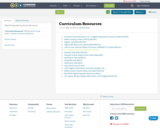
Digital Citizenship Curriculum Resources

This is an entry-level, ENG 101 college course designed to be taught online over eight weeks. It includes an evaluation (for a movie); a rhetorical analysis (of a song); an annotated bibliography; and an extended argumentative research paper. It is a no-cost course correlated to an open-source textbook, following OER standards and guidelines. In addition to material for the listed three papers, it also includes lessons, prerecorded videos, and discussion board topics to create a thorough and comprehensive curricula.
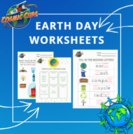
Earth Day is a time for raising awareness and appreciation for our environment. Children will learn the importance of their home planet and about the three R's: Reduce, Reuse, Recycle.
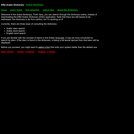
This dictionary allows the user to look up words either in Arabic, in English, or via an Arabic stem. For instance, if you type in ___ it will give you six different words that have the same stem (or root). The dictionary includes less than 4,000 words, and there is no space to type in Arabic; one must use the online keyboard provided. It is available both online and for PC download.
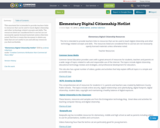
This annotated list is intended to provide teachers links to resources that can be used to teach digital citizenship and other technology related concepts and skills. The resources listed are considered free to use but are not necessarily openly licensed materials unless otherwise noted. Feel free to remix this document to delete any links that are not useful to you and add any resources you find worthwhile.
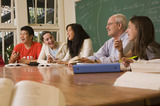
The 11th grade learning experience consists of 7 mostly month-long units aligned to the Common Core State Standards, with available course material for teachers and students easily accessible online. Over the course of the year there is a steady progression in text complexity levels, sophistication of writing tasks, speaking and listening activities, and increased opportunities for independent and collaborative work. Rubrics and student models accompany many writing assignments.Throughout the 11th grade year, in addition to the Common Read texts that the whole class reads together, students each select an Independent Reading book and engage with peers in group Book Talks. Students move from learning the class rituals and routines and genre features of argument writing in Unit 11.1 to learning about narrative and informational genres in Unit 11.2: The American Short Story. Teacher resources provide additional materials to support each unit.

In this unit, students will produce two major pieces of work. The first piece is an argument essay that grapples with one of the core questions of the unit: who are we, and who have we become because of the ways we connect? Students will read, annotate, and discuss several texts together as they consider the issues surrounding this question, and they will also research and annotate independently as they search for more evidence and perspectives to help deepen their ideas. They will also create a museum exhibit as part of a team. The exhibit project will help students identify what's worth preserving about their unique place in history.
PROJECT UNITS
This project unit continues to meet the English Language Arts standards as it also utilizes the learning principles established by the Partnership for 21st Century Skills. It is designed to support deep content knowledge and perseverance through long-term project planning and implementation. In addition, it will help students to recognize, develop, and apply the planning, teamwork, communication, and presentation skills they will use while presenting a final product to their class and/or the greater community. This real-world project-based activity will give students an opportunity to apply the skills they have been learning all year and will guide them to develop the motivation, knowledge, and skills they need in order to be college and career ready.
ACCOMPLISHMENTS
Students write an argument paper where they develop a claim about current culture as it has been influenced by digital connectivity.
Students participate in a group project to create a museum exhibit that captures a unique place, time, and relationship to technology. Students acknowledge the differing perspectives of each group member and use those perspectives to synthesize one cohesive visual argument together.
GUIDING QUESTIONS
These questions are a guide to stimulate thinking, discussion, and writing on the themes and ideas in the unit. For complete and thoughtful answers and for meaningful discussions, students must use evidence based on careful reading of the texts.
What does it mean to be digitally connected?
What are the implications of living in a world where everyone is digitally connected?
How does the availability of instant connectivity shape our relationships?
What does our Internet use reveal about people's needs as humans?
BENCHMARK ASSESSMENT: Cold Read
During this unit, on a day of your choosing, we recommend you administer a Cold Read to assess students’ reading comprehension. For this assessment, students read a text they have never seen before and then respond to multiple-choice and constructed-response questions. The assessment is not included in this course materials.
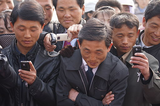
In this lesson, you'll continue to question the role that digital devices play in shaping your identity. You'll also workshop a body paragraph from your essay.In this lesson, students will continue to question the role that digital devices play in shaping their identity. They'll also workshop a body paragraph from the argument essay.

There has been much discussion in recent years, on this campus and elsewhere, about the death of the book. Digitization and various forms of electronic media, some critics say, are rendering the printed text as obsolete as the writing quill. In this subject, we will examine the claims for and against the demise of the book, but we will also supplement these arguments with an historical perspective they lack: we will examine texts, printing technologies, and reading communities from roughly 1450 to the present. We will begin with the theoretical and historical overviews of Walter Ong and Elizabeth Eisenstein, after which we will study specific cases such as English chapbooks, Inkan knotted and dyed strings, late nineteenth-century recording devices, and newspapers online today. We will also visit a rare book library and make a poster on a hand-set printing press.
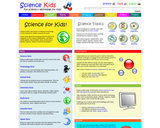
Learn more about the amazing world of science by enjoying our fun science experiments, cool facts, online games, free activities, ideas, lesson plans, photos, quizzes, videos & science fair projects.
Science is a fascinating subject, there are many great ideas that will help you make a great science fair project.
Find science games, experiments, facts, projects, videos, quizzes, lessons and images related to the topic of your choice.
Put on your safety glasses & lab coat and get to work on a fun science fair project.
Here's a few of our ideas for science fair projects.
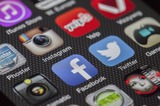
Students will practice exchanging opinions on certain topics related to social media and technology.
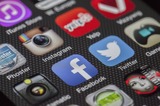
Students will practice exchanging opinions on certain topics related to social media and technology.

Students will work on their interpretive skills by listening to a news story and explaining what they thought happened. They will later present their findings to the whole class

Students will work on their interpretation skills by listening to a news story and explaining what they thought happened. They will later present their findings to the whole class.
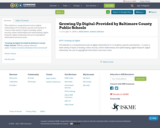
This website is a comprehensive look at digital citizenship for K-12 students, parents and teachers. It covers a wide variety of topics including: online security, online relationships and cyberbullying, digital footprint, digital citizenship, the use of copyrighted information and much more.